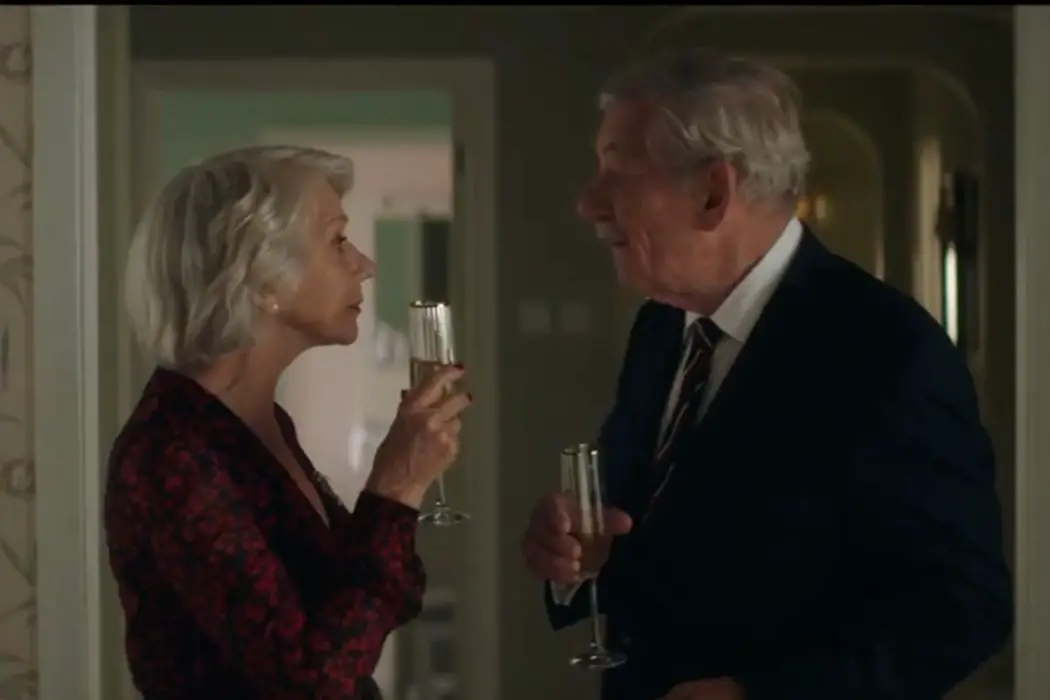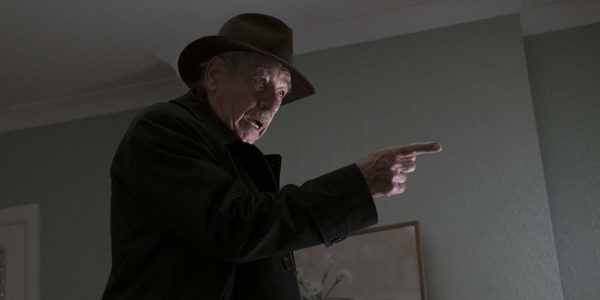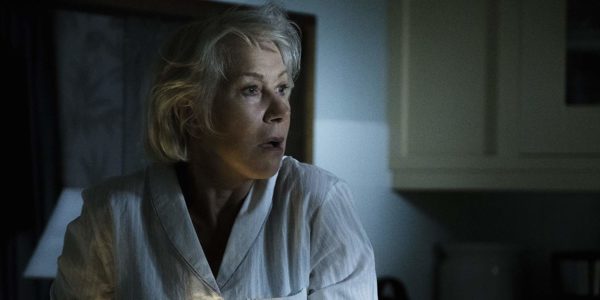THE GOOD LIAR: Lies & Deceit Can’t Cover Up The Mess At The Center Of This Misfire

I used to work in politics but film has always…
I was always high on the prospect of an Ian Mckellan and Helen Mirren thriller. The Good Liar, directed by Bill Condon and adapted from the novel of the same name by Nicholas Searle, has all the ingredients to get your heart racing and your blood pumping: extortion, murder, stolen identity, even online dating. But the sum of its parts comes up far short of expectations, even if the cathartic finale confirms Helen Mirren, at 74, as one of the screen’s most underrated badasses.
Setting the Scene
Both Mirren and McKellen do their best, imbuing what is a rather lackluster and humorless storyline with a natural warmth and charm. McKellen, to whom the film really belongs for about an hour and fifteen minutes, plays his character’s (Roy Courtnay) scheming nature with confidence. There is an important element of physical humor in his persona at which McKellen excels, and it is here mostly to endear his character to the audience. On paper Roy is a good-natured, mild-mannered crook whose financial misdeeds pale in significance against his charm and wit. But whatever humor and mischievousness the script is trying to impart to the audience, it falls flat, both on its own and in relation to McKellen’s own acting choices.

When we meet Roy and Betty (Mirren) they are filling out online dating profiles; they check boxes indicating their drinking and smoking habits: Roy doesn’t smoke and Betty doesn’t drink. That we see them at the same time indulging in these vices is less a tool to instruct the audience of the characters’ deceptiveness than a hint at the film’s overall insincerity. It’s an overly convenient frame for a film that hopes to comment on the mutability of identity and character. But at least their first date allows the audience to witness a few fleeting moments of chemistry between the two actors; it is a delight to watch both Roy and Betty squirm as they confront the white lies at the foundation of their relationship.
One of the most glaring problems with The Good Liar is that the audience is supposed to believe in the frank impossibility that Dame Helen Mirren’s character, a former Oxford history professor, is possibly as dimwitted and gullible as she is portrayed. This is just one of many clunky, cumbersome conceits you have to contend with throughout the movie.

Another, for example, is of characterization. Roy is a cunning thief who makes his living screwing unsuspecting people out of their money by implicating them in complicated financial deals. One of these deals involves two men hoping to cash in on a vague, real estate venture with some Russian businessmen. It all, predictably, goes wrong for the suckers, and Roy gets away with another couple hundred thousand in the bank. The other deal involves Betty, who has been persuaded to combine her finances with Roy’s in an account she is told is destined to make great returns.
Throughout all of this, Roy is painted as a mild-mannered, charming eccentric; he would have to be, otherwise his relationship with Betty would not have lasted and his deeds would not have stayed secret. But we are also asked to accept that Betty is so gullible as to agree to such a risky financial deal. Her unsuspecting nature is meant to make Roy seem all the more menacing, but his quirky character prevents that from materializing and it makes the whole viewing experience frustrating rather than thrilling.
What is the Point?
The Good Liar is not a classic whodunnit, but it does share some of the narrative conceits that makes the genre so famous and beloved (when it is done right), in that a mystery needs to be solved and is done so in a long, expository speech that connects hidden clues from earlier in the film. The best whodunnits resolve in unexpected ways, but they are all totally rational, and the audience leaves the theater slapping their palms to their foreheads in frustration thinking they should have known the answer all along. The Good Liar reveals itself quite suddenly, too. When the truths of Roy’s past are slowly exposed we know that he will soon face his demise. Even if we don’t know how he will face it, we know the gig is up.

The revelations in the final act shall remain a mystery here, but it is important to talk about how revelations can help and hurt a story like this. We were led to believe Roy’s comeuppance would be the price for his fraudulent ways, and in a small way it is. But Betty’s revelations, taken in the context of the movie’s preceding hour and fifteen minutes, don’t make any of the big reveals less shocking, they just make them less impactful. The problem is that the audience spends almost the whole movie thinking Betty is an unobservant dimwit who can’t do things for herself. And Roy isn’t portrayed in a morally corrupt enough light for us to really care about the fact that he has cheated numerous people out of their life savings; if anything, we are encouraged to hope for it, such is the endearing, jovial way he goes about his business. It also makes the actions of other key characters feel just as out of place, big over exaggerations in a film that is trying to sell itself as a tale of the subtle lies we tell ourselves and others.
Instead, the narrative whiplash in The Good Liar makes the whole journey feel unnecessary and exhausting. You could have swapped any of the plot points in the first hour and fifteen minutes for anything else, and you could still have resolved it with Betty’s revelation. Conversely, Betty’s own history could have been completely different and also not have affected the journey up to that point in any way. Roy and Betty’s histories, however intertwined, are really inconsequential to each other in a narrative sense, which makes the whole two hours of the film seem like a disappointing waste. It’s one thing to make a movie about the malleability of identity, it is another one to lie to your audience altogether.
Do you agree with this review? Let us know in the comments!
The Good Liar is currently in cinemas.
Does content like this matter to you?
Become a Member and support film journalism. Unlock access to all of Film Inquiry`s great articles. Join a community of like-minded readers who are passionate about cinema - get access to our private members Network, give back to independent filmmakers, and more.
I used to work in politics but film has always called to me. Now I'm putting my love of the art form to use! I love social thrillers, coming-of-age tearjerkers, and pitch black comedies. The Coen Brothers, Olivier Assayas, Ingmar Bergman, Kelly Reichardt, and Andrew Haigh speak to me on a spiritual level. Enjoy!













